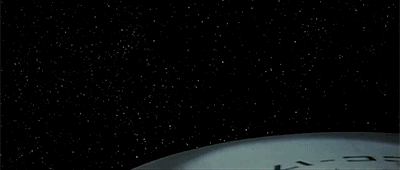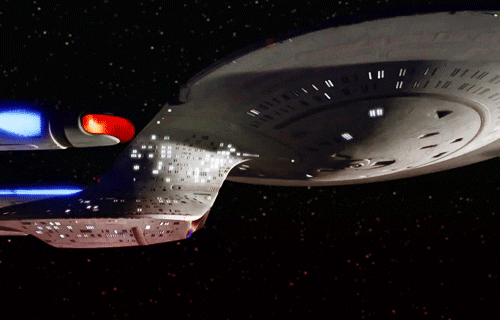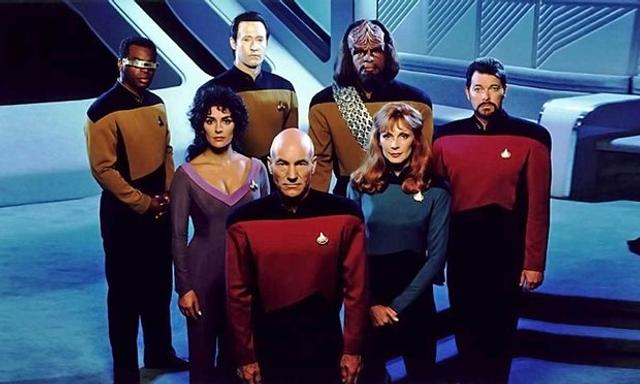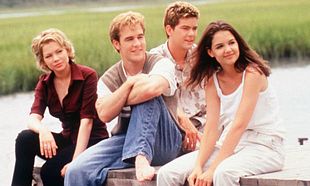In September of 2016, Star Trek will celebrate the fiftieth anniversary of its first episode.
Launched back in 1966, the series and the property as a whole has since become a cultural institution and five spinoffs, dozens of movies and a successful reboot in 2009. However, since JJ Abrams turned Star Trek around and made into a broader appealing property, fans of the series have felt somewhat neglected. There hasn't been a Star Trek-related TV series since Enterprise - which was cancelled unceremoniously in 2005 after just four seasons. All previous spinoffs hit seven seasons.
There's been constant rumblings and rumours surrounding a supposed new series, although nothing has been made concrete as of yet. It's easy to see why in today's market. For one, Paramount is clearly backing the movies instead of a TV option. The box office takings for Star Trek and Star Trek Into Darkness reached in excess of $300,000,000 and were both received well by critics and audiences alike.
Yet, there has been no real drive for Star Trek to television. Abrams' vision of Star Trek has been one of bridging the gap between hardcore fans and mainstream audiences. So far, it's worked - at a cost, some would argue, of losing what made Star Trek so brilliant to begin with. Into Darkness had clear references to domestic terrorism and the US response and presented a much more sinister version of what Starfleet, the organisation to which the Enterprise was attached, than had been seen in previous film entries.

Again, taking real-world events and focusing them through the lens of Star Trek isn't new. The Undiscovered Country, for example, was pitched as the fall of Communism and the Iron Curtain in space. Dozens of episodes in The Next Generation dealt with hot-button topics like terrorism, single-parent families, gender issues and plenty more besides. These episodes were intelligent, well-written and didn't talk down to the audience. If anything, you had to step up and pay attention to it.
That's something that has been missing from JJ Abrams' version. And that's why Netflix needs to step in and get on with a new Star Trek TV series.
The VOD service has made great strides in creating bold, original content. Sense8, the sci-fi series created by the Wachowskis and J. Michael Stracynzki, dealt with topics and characters that were unheard of in modern sci-fi. Narcos, the latest offering, crackles with true authenticity as it showcases the bloody glamour of Pablo Escobar and his reign of terror in Columbia in the '80s. House of Cards, even though it's a remake, showed the dark underbelly of American power politics. Netflix has even gone out and restarted dormant television series, most notably Arrested Development. The Killing, likewise, found second life on Netflix.
The advantage Netflix has over conventional television studios is that it can take chances. With close to sixty million subscribers, Netflix isn't going anywhere anytime soon. Moreover, US Netflix has had all Star Trek TV series on its library for quite some time and, by all accounts, they've been extremely popular. Otherwise, why keep them there? Provided it can strike a deal with CBS, the current rights holders to television incarnations of Star Trek, Netflix can very easily put a new series into production.
It has the support of loyal fans and former stars alike. But more importantly, it has the perfect platform to do so. Netflix is built around the idea of binge-watching. The run of episodes - 24, usually - fits perfectly with this model. When we consider that most episodes take place in a few sets here and there, a series can be put together quite easily. Moreover, the advances in CGI means that it can be done in a cost-effective manner.

Not only that, the former writing staff on previous series have gone on to incredible success. Ronald D. Moore, who served as showrunner for Deep Space Nine, reinvigorated Battlestar Galactica into one of the most critically-acclaimed series of the last ten years. Outlander, his latest project, has been nominated for several awards and draws huge audiences. Ira Steven Behr, another writing alumnist, served as executive producer on The 4400. Rene Echevarria, likewise, has gone on to executive produce Teen Wolf, which has become a huge hit with audiences.
Although Simon Pegg, who's writing the in-production follow-up to Star Trek Into Darkness, has said that the next entry will be more in keeping with the original series, it can't honestly achieve the same level of depth that it had. How could it? It's a two-hour film versus a twenty four-hour season. Time can be given to develop characters, create narratives, explore worlds and more besides. When we think of Star Trek, we think of bold visions of the future and meaningful stories - not explosions and foot-chases. It's not that you can't have one without the other, but it's more that you dilute one in favour of the other. Abrams' Star Trek has done that - and lost what made Star Trek great in the first instance.
But it can be great again.











































































